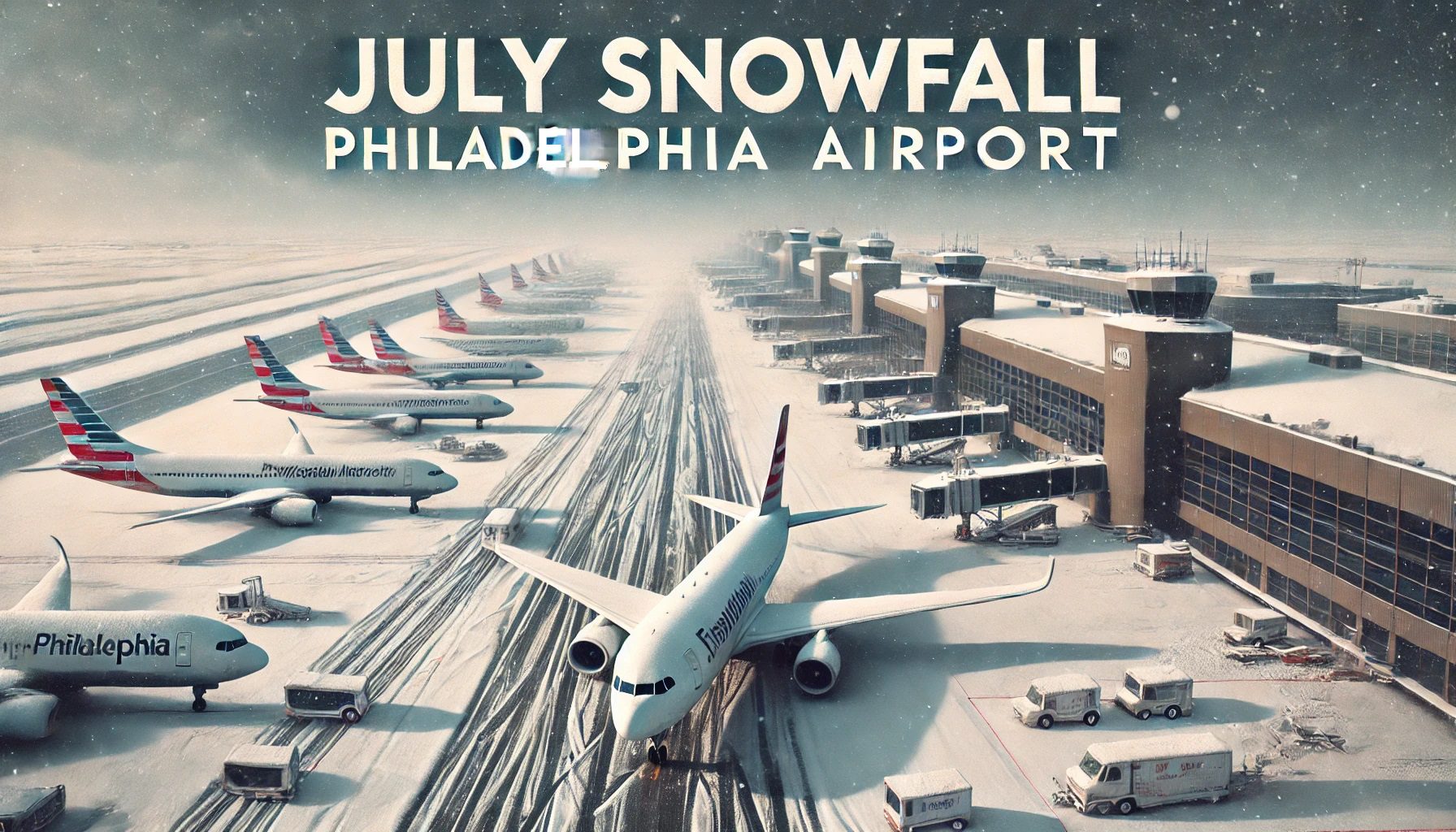Historical Occurrences of July Snowfall in Philadelphia Airport

July snowfall philadelphia airport – Snowfall during the month of July in Philadelphia Airport is an extremely rare occurrence, with no recorded instances in the airport’s history.
As the unusual snowfall of July blanketed Philadelphia Airport, causing widespread delays, one couldn’t help but recall the recent visit of Virginia Governor Glenn Youngkin to Israel, where he forged important partnerships to strengthen economic ties and enhance security cooperation.
Now, as the snow melts away, the airport’s operations slowly return to normal, a testament to the resilience and adaptability that define both Philadelphia and the global community it serves.
The average temperature in Philadelphia during July is around 80°F (27°C), making it highly unlikely for snowfall to occur during this time of year.
Amidst the unexpected snowfall that blanketed Philadelphia Airport in July, the political landscape stirred. The Trump-Vance feud reverberated, casting a shadow over the unusual weather event. As the snowflakes swirled, it became a backdrop to the unfolding drama, a reminder that even in the most unpredictable moments, the currents of power and conflict continue to surge.
Impacts of July Snowfall on Airport Operations

The occurrence of snowfall in July at Philadelphia Airport is a rare and disruptive event that can significantly impact airport operations. The presence of snow on runways and other operational areas can lead to a range of challenges and delays, affecting both flight schedules and passenger travel.
Runway Conditions
Snowfall can severely affect runway conditions, making it hazardous for aircraft to land and take off. The accumulation of snow on runways reduces friction, making it difficult for aircraft to maintain traction and increasing the risk of skidding or sliding. This can lead to runway closures or restrictions, causing delays and cancellations of flights.
Flight Schedules
July snowfall can disrupt flight schedules in several ways. Snow removal operations may require runways to be closed temporarily, leading to delays or cancellations. Additionally, the reduced visibility caused by snowfall can affect aircraft navigation and communication, further contributing to schedule disruptions.
Passenger Travel
Snowfall can also impact passenger travel in various ways. Flight delays or cancellations can cause inconvenience and frustration for passengers, especially those with connecting flights or tight schedules. Snow-covered roads and sidewalks can make it difficult for passengers to reach the airport or navigate within the terminal, potentially leading to missed flights.
Mitigation Measures, July snowfall philadelphia airport
Philadelphia Airport has implemented several measures to mitigate the impacts of July snowfall on airport operations. These measures include:
- Snow removal equipment: The airport has a fleet of snow removal equipment, including plows, brooms, and deicing trucks, to clear runways and other operational areas quickly and efficiently.
- Trained personnel: The airport employs trained personnel who are experienced in snow removal and emergency response operations.
- Contingency plans: The airport has developed contingency plans to address the challenges posed by July snowfall, including alternative runway configurations and arrangements for passenger assistance.
By implementing these measures, Philadelphia Airport aims to minimize the disruptions and delays caused by July snowfall, ensuring the safety and efficiency of airport operations and passenger travel.
Climate Change and the Likelihood of Future July Snowfall Events: July Snowfall Philadelphia Airport

The effects of climate change on future July snowfall events at Philadelphia Airport are complex and uncertain. However, several factors suggest that the likelihood of such events may decrease in the future.
Rising Temperatures
As global temperatures rise due to climate change, the atmosphere can hold more moisture. This leads to an increase in precipitation, but it also means that more precipitation falls as rain rather than snow. In Philadelphia, the average temperature has increased by about 2 degrees Fahrenheit over the past century. This warming trend is expected to continue in the future, which could lead to a decrease in the frequency of snowfall events.
Changes in Precipitation Patterns
Climate change is also expected to lead to changes in precipitation patterns. In general, the eastern United States is expected to become wetter, with more frequent and intense storms. However, these storms are also likely to be more sporadic, with longer periods of drought in between. This could lead to a decrease in the overall amount of snowfall, as well as a decrease in the frequency of snowfall events.
Expert Projections
Several studies have projected that the likelihood of July snowfall events at Philadelphia Airport will decrease in the future due to climate change. For example, a study by the National Oceanic and Atmospheric Administration (NOAA) found that the average number of days with snowfall in Philadelphia is projected to decrease by about 20% by the end of the century.
